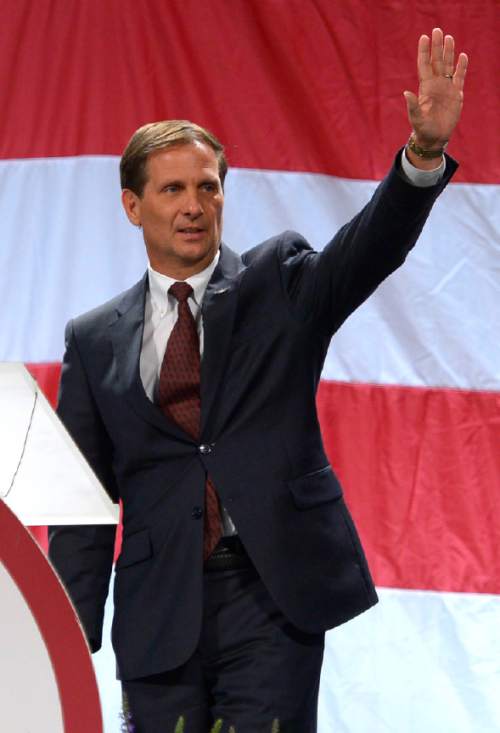This is an archived article that was published on sltrib.com in 2016, and information in the article may be outdated. It is provided only for personal research purposes and may not be reprinted.
Suppressing his outrage, Rep. Chris Stewart, R-Utah, said Tuesday he intends to grill the FBI director over his recommendation that former Secretary of State Hillary Clinton face no criminal charges for sending classified information from private email servers.
Director James Comey held a news conference where he said that while Clinton was "extremely careless," he believes "no reasonable prosecutor would bring such a case," largely because the evidence doesn't suggest Clinton intentionally mishandled the information or sent vast quantities.
That's not what Stewart, a member of the Intelligence Committee who has read Clinton's classified emails, was expecting.
"I'm surprised and I'm disappointed," he said in a telephone interview. "Having seen and known for a while what was on these servers, I expected a different outcome."
Stewart read those emails months ago, after Clinton, the presumptive Democratic presidential nominee, claimed she didn't send any emails marked classified and complained this scandal is an example of "over classification" by the government.
"I wanted to apply my own judgment, and after having read them, it was extraordinarily clear that it wasn't a case of over classification," Stewart said.
Stewart said he plans to question Comey in a closed-door hearing to understand his reasoning. Comey, a Republican, is in the middle of a 10-year term as FBI director and vigorously proclaimed the agency's investigation wasn't swayed by political considerations.
While Comey and Stewart disagree on potential criminal charges, they appeared to agree on a number of other points.
Both believe there wasn't over classification and they agree Clinton's email was less secure than an average Gmail account, making it at least possible that foreign agents hacked her servers.
While a few emails were stamped classified, others were so obviously classified that she should have known to move the conversation to a more secure platform.
"If I gave you a piece of paper with the names and locations of 10 agents overseas, you would know that is classified, and at least one of those emails was to that degree so obvious," said Stewart, who said he vetted that sentence with Intelligence Committee lawyers not to give away any government secrets.
Comey put it this way: "There is evidence to support a conclusion that any reasonable person in Secretary Clinton's position, or in the position of those government employees with whom she was corresponding about these matters, should have known that an unclassified system was no place for that conversation."
On one other point Comey and Stewart seemed to agree: Clinton's actions likely would have resulted in at least administrative sanctions for anyone else still in government.
"At a minimum, you lose your security clearance, you lose your job," Stewart said. "And yet some are saying we should promote her to the most important job in the land."
Avoiding a criminal prosecution is an obvious boon to Clinton's presidential aspirations, but the scandal won't go away. Republicans, like Stewart, plan to hammer the issue in the months to come.
He said: "I believe the American people should hold her accountable for this judgment."



